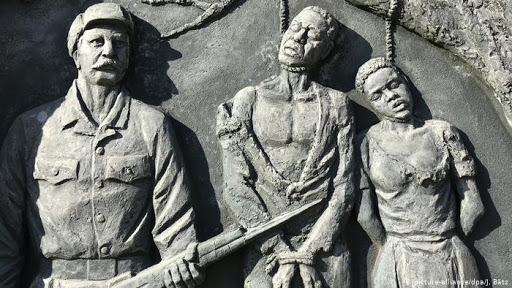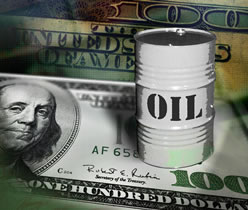Warring Libya: an outpost of global class war
Mass demonstration against the regime of Qaddafi in Bayda, Libya (22 July, 2011).
Posted at 09:52h in Blog, Featured by roape1974
In a major article published in ROAPE, and now available to access for free, Matteo Capasso re-frames the war in Libya by showing how US-led imperialism underlies the ongoing war and militarism that have contributed to the destruction of the country. In this blogpost, Capasso argues that war, militarism and killing have imposed themselves as new mechanisms of social reproduction and capital accumulation at the global level.
By Matteo Capasso
The history of colonialism and imperialism is a history of absolute or relative slaughter, depending on the balances of the class struggle. In our current age, where
multiple and interlinked crises (including the ongoing pandemic) reveal the devastating power of neoliberal capitalist accumulation, class struggle is intensifying at the global level. Therefore, it is not surprising that the US-led imperialist structure has progressively embraced war and militarism to reshape the ways in which countries of the Global South enter the circuits of capital. After all, the choice has always been one between socialism or barbarism.
In my
recent article published in ROAPE, and now available to access for free, I re-frame the war in Libya by locating it in such a scenario, showing how US-led imperialism underlies the ongoing war and militarism that have contributed to the gradual destruction of the country. Understanding the fate of Libya is crucial to map out the intensifying configuration of circuits of war and capital, as Libya’s fate mirrors the fate of US-led imperialism, thus needs to be understood if we are to chart a different way to imagine, fight and prepare politically for the future.
Trivialising History, Normalising War
The prevailing narrative proposed by policy think tanks argues that since 2011 Libya has become a fertile environment for the development of a pervasive ‘war economy’ dependent on violence, where various armed groups profit from the political turmoil. They present the current situation as an effective prolongation of Qaddafi’s system of patronage and a textbook ‘rentier’ economy, thus Libya’s refusal to embrace liberal ideas and neoliberal economic reforms. As a result, the war is turned into a local, self-inflicted, and cultural/tribal problem. In doing so, liberal political economy not only ends up condoning the logic of capital accumulation driving the US-led imperialist agenda; but—in the process—also rewrites the history of Libya, trivialising its anti-imperialist and progressive past. In such a scenario, war appears as a somewhat natural, if not necessary, outcome for Libya to move to a better developmental stage, while academics keep busy reflecting on the failures of Western ‘good intentions,’ of humanitarian interventions and state-building.
In opposition to this dominant narrative, this blogpost draws on the work of
Ali Kadri to re-conceptualise the role of war and militarism as a form of
accumulation by waste in the US-led imperialist structure. In doing so, it proposes a novel historicization of the gradual unmaking of the Libyan social formation vis-à-vis the interstate imperialist system from 1969 up to the present.
The Long Hybrid War on Libya
In order to comprehend how Libya reached the current level of destruction, it is crucial to delineate the structural and historical context that functioned as a prelude to the
hybrid war unleashed on the country by US-led imperialism since the early 1980s, whose consequences triggered significant socio-economic and political changes and subsequently prompted political conflict in the country.
In 1969, a group of seventy graduates from the armed forces undertook a coup d’etat against the monarchy of King Idris. With this bloodless military operation, whose code-name was ‘Jerusalem’ in honour of the Palestinian cause, Libya embarked toward a path of revolutionary politics at home and abroad.
The Libyan government soon began pursuing a project of national independence that simultaneously advocated for a radical undoing of the relations of domination at the global level. In other words, national liberation required a wider restructuring of the process of
unequal exchange and the power hierarchies that allowed the US-led imperialist order to dominate the Global South. By taking seriously into account the anti-imperialist and socialist ideas adopted since the early years of the 1969 revolution (rather than trivializing it, as liberal political economy does), one understands the kernel of the struggle: the Global South’s power to imagine alternative paths to development and regional cooperation by regaining control to shape one’s economy, culture and society. Therefore, numerous political and economic initiatives were undertaken in order to improve the living conditions of the population, including the nationalization of the oil industry in 1973, the construction of infrastructural and redistributive programs, as well as the support of revolutionary movements worldwide (including Palestine, South Africa and Angola), and the pursuit of projects of regional integration. These policies not only translated into a solid popular consensus and widespread support at home, but were also part-and-parcel of a wider post-colonial momentum leading the official call for a
New International Economic Order in 1974.
This process of egalitarian development, however, was gradually abandoned in the 1990s. The hybrid war against Libya reached a turning point first with the long military confrontation in Chad; and second with the imposition of international sanctions in 1992. These two key historical moments culminated in a massive military-ideological defeat for the Libyan revolution, whose consequences reverberated across all levels of society. As the Libyan government began to lose its autonomy over economic policies, many members of the state-led capitalist class abandoned their support for anti-imperialist policies and aligned themselves with international dollarised capital. Like many other Arab republics, this shift marked the emergence of a
merchant/comprador class, defined by its parasitic relationship to its country and its national resources.
The once nationalist and anti-imperialist elites enriched themselves through rent and commercial activities, systematically transferring their wealth abroad, instead of investing in national or regional enterprises. In such a context of geopolitical uncertainty and constant threat of war, further aggravated by the multi-lateral sanctions that progressively dismantled the infrastructural and redistributive achievements of the past decades, networks of patronage and less democratic structures began to appear. The result of these changes inevitably translated into the emergence of socio-economic inequalities,
the mounting use of corruption and political repression (see, for example, the
Abu Salim prison massacre), lack of job opportunities and revival of tribal affiliations as both tools of control and valves of a societal safety net.
Therefore, 2011 witnessed a large mass movement of Libyans who angrily protested in the streets, as well as the speedy mobilization of the military power of the US and its NATO allies to direct the course of events. At the same time, one could ask why the so-called ‘international community’ did not allow the reformist wing of the ruling elites, led by Saif al-Islam, to transition Libya into a full market economy, rather than having the country slip into total war.
A Moribund Bully
Since the US invasion of Iraq, the Arab world has been the protagonist in a passage from an equilibrium between economic and military imperialism, where the ideology of economic ‘globalisation’ had the upper hand, to a militaristic and technological form of imperialist expansion, where war and pauperisation are pursued, as in Libya and Syria. Consequently, while I agree with Kadri’s insights that wars respond to a process of accumulation by waste, I further argue in the
ROAPE article that these wars are also the result of global contradictions and, particularly, the continuing decline of US imperialist power. This has resulted from the progressive decline of American hegemony in the world due to the worsening of its economy at home, which – in turn – has led to the pursuit and acceptance of ‘unfinished wars’, particularly in the MENA region. These wars are tolerated because they strike a new balance, and they maintain high levels of international competition, allowing many countries to participate while not necessarily dominating, as has happened in Libya.
The corollary for Libya is that its integration into the global economy has also changed. How? Via war, militarism, border missions and the act of killing itself, which have imposed themselves as the new mechanisms of social reproduction and capital accumulation at the global level. In such a scenario, futile are the international actors’ calls for an arms embargo and ceasefires. Why? Because wars and their consequences are becoming the new terrain of social reproduction for an imperial capital that struggles to remain alive. Wars have increasingly become a paradigmatic form of investment opportunity through which the Third World is being framed and integrated into the global economy, where armaments, drones and technological infrastructures of surveillance can be tested, perfected and reused at home.
So, when thinking or approaching the war in Libya, it is important to step back and ponder what function war plays in the global economy. In doing so, the terrain of international class struggle will suddenly switch and inevitably reveal the failure of pseudo-leftist posturing over the next NATO intervention,
as it happened in 2011. The imperative is to start drawing clear links between systemic and historical inequality at home and abroad, thus bringing back relentlessly the question of imperialism.
Warring Libya: an outpost of global class war

 I told nikkas about Sudan color revolution
I told nikkas about Sudan color revolution Our people can never create and own things, cacs are really devils.
Our people can never create and own things, cacs are really devils.

